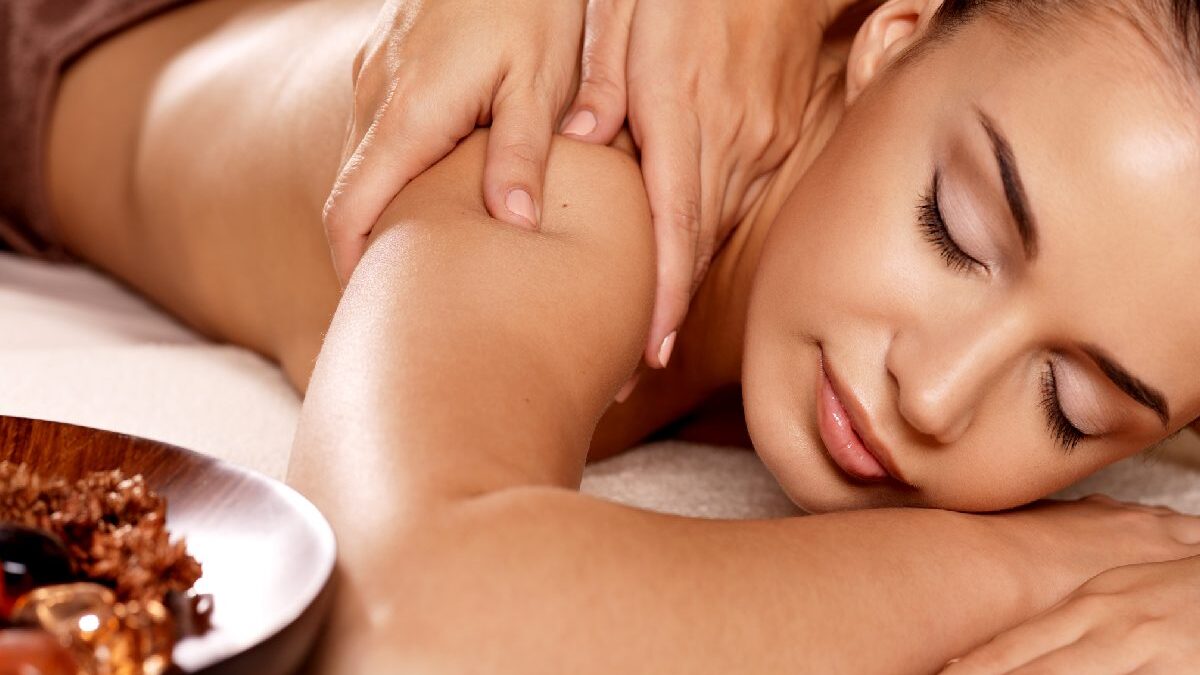Craving a quality massage? You’re far from the only one. A rubdown doesn’t just feel good. However, it provides a wide array of physical and mental health benefits. From lowering stress to promoting better sleep, here are the top ten reasons to give your masseuse a call.
Table of Contents
Reduced Pain and Stiffness – Health Benefits of Massage
This one’s a no-brainer, but the benefits linger long after your session. Massage loosens the muscles, reduces stiffness, and promotes longer deep sleep, the restorative stage that improves tissue. If specific muscles or joints are nagging you, a masseuse will stimulate those nerve fibers to counteract pain at the source.
Better Sleep – Health Benefits of Massage
Not only do massages encourage longer, more restorative sleep, but they encourage rest right on the table. Just one hour of massage is equivalent to four hours of quality rest, so if you need to catch up on z’s, a good rubdown is an excellent way to do so.
Lower Stress Levels
Daily stress accumulates quickly, but a massage provides welcome relief. There’s a reason for that incredible feeling of clarity post-massage—a 60-minute session can lower cortisol, the body’s stress hormone, by an average of 30%. This helps the body respond to stress in a more controlled manner, eliminating built-up tension and stress.
Reduced Anxiety
Excellent news for anxiety sufferers: massage can be a beneficial part of your regimen. In contemporary medicine, massage is used as a relaxation technique to reduce symptoms of generalized anxiety and panic disorder. Massage reduces tension while increasing feelings of calm and relaxation.
Reduced Depression
Massage can boost your mood too. Serotonin, the hormone that contributes to well-being and happiness, rises post-massage. After a 60-minute session, serotonin increases by an average of 28%. This increases your ability to fight feelings of sadness, providing welcome relief.
Improved Immune System
With regular massage, your immune system will experience notable improvements. Benefits include flushing out toxins and boosting white blood cell activity, which helps your body fight disease. Not only will it help your immune system kill negative cells, but it also decreases T-cells for improved function overall. The results are so impressive that they’ve been tested on HIV patients, who showed an increase in cells that defend against disease.
Lower Blood Pressure
Massage improves blood circulation and lowers blood pressure and hypertension, especially over time. Since blood vessels are made out of muscle fibers that repeatedly dilate and relax, massage helps those vessels stay in a relaxed state, allowing blood to flow through smoothly.
Reduced Swelling and Inflammation – Health Benefits of Massage
Massage helps supplement physical therapy and rehabilitation, so if you’re experiencing swelling, it offers a boost to your current routine. Every session, your body will pump increased levels of oxygen and nutrients to your organs, which accelerates recovery. This is what makes massage such a go-to for athletes. If you want to relax after a long day on your feet, a foot and calf massager provides similar benefits right at home.
Improved Respiratory Health
With respiratory issues like asthma, it’s easy to feel like there’s no relief. Massage, however, can improve the respiratory system in a number of ways. Each session, intercostal muscles are loosened, which expands the rib cage for better breathing. The heat generated during a massage raises the respiratory rate as a whole, and combined with essential oils, relief increases. Peppermint oil, for instance, relaxes the windpipe muscles to reduce cough.
Improved Flexibility – Health Benefits of Massage
Want to enjoy an easier range of motion? Massage benefits more than just the muscles; it also tackles tissues, tendons, and joints, keeping them more fluid and less susceptible to injury. This makes frequent movement easier and less painful, but it also improves flexibility and range of motion over time. You’ll be amazed at how much you can move when tightness and tension are out of the picture.

